After shaping Eurovision 2023 in Liverpool and staging Luxembourg’s comeback in 2024, German Nenov is at the helm of Ukraine’s national selection. For Vidbir 2026, he plans to take a step closer to “a true Ukrainian Eurovision” – with more time, a bigger vision and deeper meaning for audiences at home and abroad.
The Odesa-born creative director has worked on dozens of Ukrainian music videos, TV shows and television performances for some of the country’s biggest pop stars before finally switching to the Eurovision world to co-produce the Liverpool contest.
German’s Eurovision journey: From Ruslana’s win to the Liverpool stage
For German Nenov, Eurovision started with a sleepless night in 2004. As a teenager, he stayed up until 3AM watching Ruslana storm to victory with Wild Dances. “That was the moment I felt a true catharsis,” he recalls. “It wasn’t just about the contest – it was about cheering for Ukraine, about believing we could win.”
That moment became a catalyst. Ruslana’s triumph didn’t just hook him on Eurovision – it sparked his lifelong love of Ukrainian music. “After that, I began to follow every entry, every scandal, every departure at Boryspil airport. Somewhere deep down, I knew that one day Eurovision would touch my life too.”
It took almost two decades, but Nenov’s teenage dream became a profession. In 2023, he joined the Eurovision production team for Liverpool, creating opening acts, VT’s, postcards and staging choices that brought Ukraine’s culture to the world in the middle of war.
And now, after Liverpool 2023, Luxembourg’s 2024 comeback and last year’s Vidbir, he’s ready for the next chapter: taking Vidbir 2026 one step closer to becoming Ukraine’s own Eurovision.
Liverpool 2023: Carrying Ukraine’s voice on a global stage
Eurovision 2023 was no ordinary contest. Ukraine had won the year before, but the war made it impossible to host. Instead, the UK stepped in – and German Nenov became one of the creative producers shaping a show that had to balance two identities at once.
“It felt like a double role,” German recalls. “We were working for the whole of Europe, but at the same time we were carrying the responsibility of representing Ukraine.”
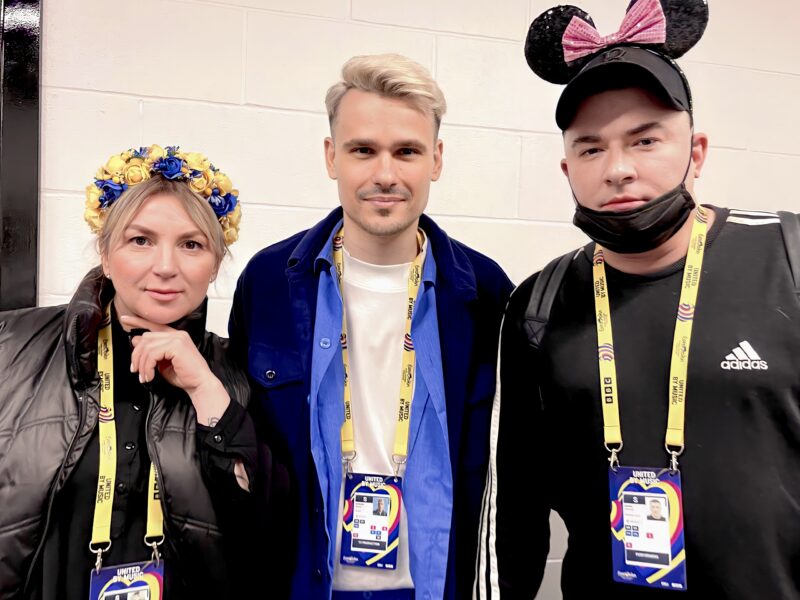
From the very first moment, the Suspilne team – including Oksana Skybinska, German Nenov, Iryna Bubnova and Tetiana Semenova – focused on making Ukraine visible. Nenov pushed for an opening with The Hardkiss’ Julia Sanina – an idea that was initially rejected. For him, the choice was symbolic. “It wasn’t a hit song, but it mattered. Liverpool opened with Ukrainian words – and at a time when Russia is trying to erase our language, that was powerful.”
Sanina’s performance was also an act of gratitude. The lyrics – “В темному морі ми не одні, на відстані руки з нами небесні ліхтарі – маяки” (“In the dark sea we are not alone, heavenly lanterns are with us at arm’s length – beacons”) – doubled as a thank you to partner countries that stood by Ukraine during the war.
The creative decisions stretched far beyond the opening act. Nenov, together with the team, worked to ensure Ukrainian culture was woven into every show: from classical pieces by Myroslav Skoryk to fashion by young designers, from Alyosha’s heartfelt performance to a subway-set opening VT filmed in Kyiv. “We showed Ukraine not only as folklore, but as a modern, diverse country with something to say to the world.”
Looking back, he calls Liverpool the best Eurovision presentation of Ukraine yet. “We had the widest palette of Ukrainian artists ever. We showed pain, resilience, tradition and the future. It was a portrait of Ukraine – not stuck in the past, but building on the past as a foundation for tomorrow. And I’ll always be grateful – all of us at Suspilne will – to the BBC team, especially Dan Shipton, Andrew Cartmell, and Lee Smithurst, for such a warm, creative partnership that took us all the way to a BAFTA.”
Luxembourg 2024: Staging a comeback after 30 years
From Liverpool, German Nenov went straight into another Eurovision milestone: Luxembourg’s long-awaited return after three decades away from the contest. The nation sought its moment to shine – and Nenov was invited to help make it real. He worked with Tali on her entry “Fighter”, a song about resilience and chasing your dream against the odds. “It wasn’t just a performance – it was a metaphor,” Nenov explains. “We wanted to show that Luxembourg was fighting its way back into the Eurovision family.”
The staging combined modern LED visuals, sharp choreography, and a glowing aesthetic, turning the stage into a battle between light and shadow. Months of preparation paid off: Luxembourg not only qualified for the final but also landed on the left side of the scoreboard in the Grand Final.
For Nenov, it was proof that creative vision can rewrite expectations. “When we arrived, everyone put Luxembourg near the bottom of the predictions. By the end, the country was back in the conversation. That was the real victory.”
Vidbir 2026: Dreams of turning Ukraine’s national final into a true Eurovision
Now German Nenov is back where his heart beats the loudest – Vidbir. For 2026, he will once again step in as creative producer of Ukraine’s national selection. But this time, he says, the ambition is bigger than ever.
“My dream is to transform Vidbir into a small Eurovision of its own,” he tells us. “Not just a TV competition, but a real festival.”
What makes 2026 different is timing. Last year, Nenov joined the project just a month or so before the live show – too late to change the structure. This year, Suspilne brought him in nearly six months in advance. “That’s a European approach,” he explains. “It means we can rethink everything, fix the weak points, and give Vidbir a transformation for its 10th anniversary.”
He admits last year’s Vidbir wasn’t perfect. At over five hours, it felt out of step with today’s fast-paced media. “People don’t want to sit through endless talking – YouTube Shorts is proof of that. We need sharper focus, stronger images, more energy.”
Another lesson: listening to the audience. Nenov and the Suspilne team did a four-year analysis of social media backlash and noticed the same pain points resurfacing each season. “We know exactly where the criticism comes from – and in 2026, we’re addressing it head-on.”
Most importantly, Vidbir has to empower the artists. Many Ukrainian singers come without big production teams, but Nenov wants to give them equal opportunities. “Every act should feel like they’re part of a professional Eurovision-level show, no matter their budget or background.”
And then there’s the meaning. In wartime Ukraine, every creative choice carries symbolic weight. “It’s not only about sending a winner to Eurovision,” Nenov insists. “It’s about showing who we are as Ukrainians – resilient, modern, diverse. If the audience leaves with just one thought, I want it to be: Ukraine is alive, and Ukraine has something to say.”
Looking ahead
From Ruslana’s Wild Dances in 2004 to staging Luxembourg’s comeback and shaping Liverpool’s show, German Nenov has lived Eurovision from every angle. Now he’s bringing all of that experience back home – with dreams to make Vidbir Ukraine’s own Eurovision.
Will this be the year Vidbir transforms from a national final into a festival in its own right? Nenov hopes so. And if his track record is anything to go by, fans are in for something bold, meaningful and unforgettable.
Are you excited to see what German Nenov and his team will create for Vidbir 2026? Let us know in the comments below!
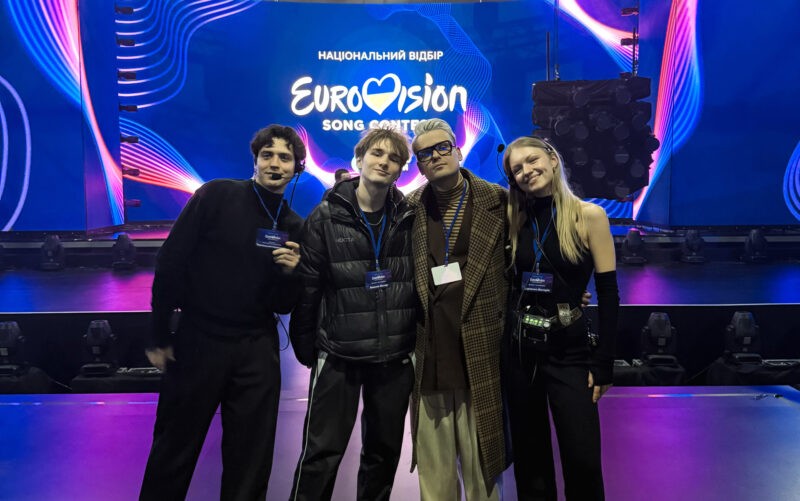
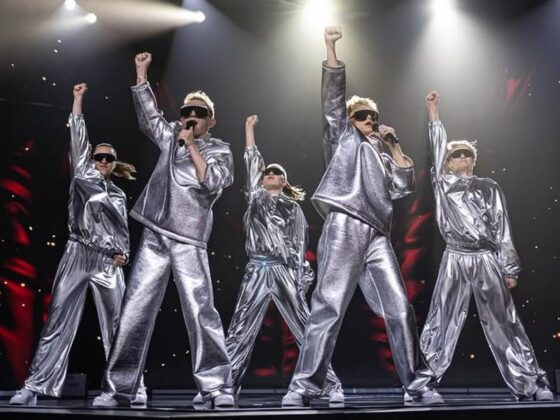
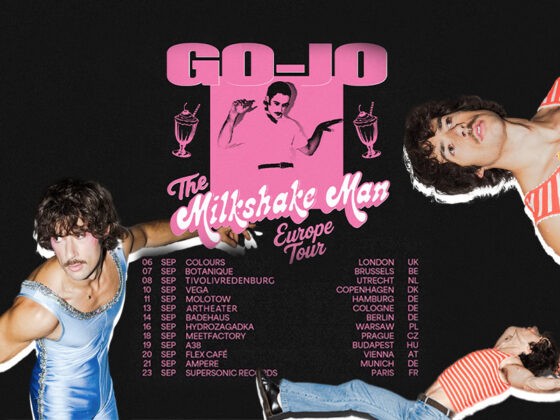
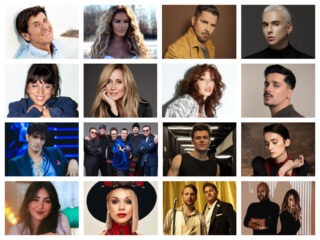
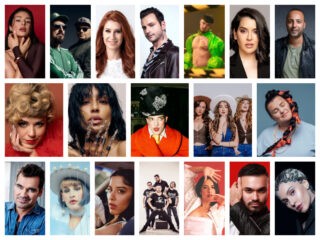
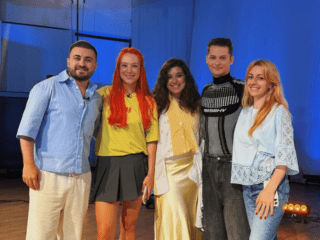





Out of all the countries, he picked… Ukraine?